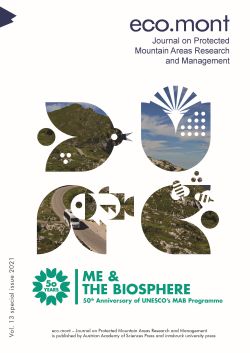
Eco.mont Vol. 13 special issue 2021, pp. 49-57, 2021/11/23
Journal on Protected Mountain Areas Research and Management

Understanding local residents’ perceptions of changes triggered by the creation of a biosphere reserve (BR) is important for a reserve’s successful management. This study asked 383 local residents of the Wienerwald BR, Austria, about their perceptions of changes, at individual and regional levels, nine years after the creation of the BR, and correlated these perceptions with place attachment. The vast majority of respondents perceived either no changes or positive ones in the region and for themselves. They saw the most positive impact of the BR as being the preservation of threatened landscape types and cultural landscapes. Study results revealed that local residents with stronger emotional, functional and social ties to the region perceived more positive impacts of the BR. The BR management could make use of the positive relationship between place attachment and perceptions of change, as high place attachment can be beneficial for the preservation of natural and cultural landscapes, and can contribute to greater involvement in participation processes by, and quality of life of, the local population.
Keywords: park-people relationships, place identity, place dependence, perceived changes, Austria